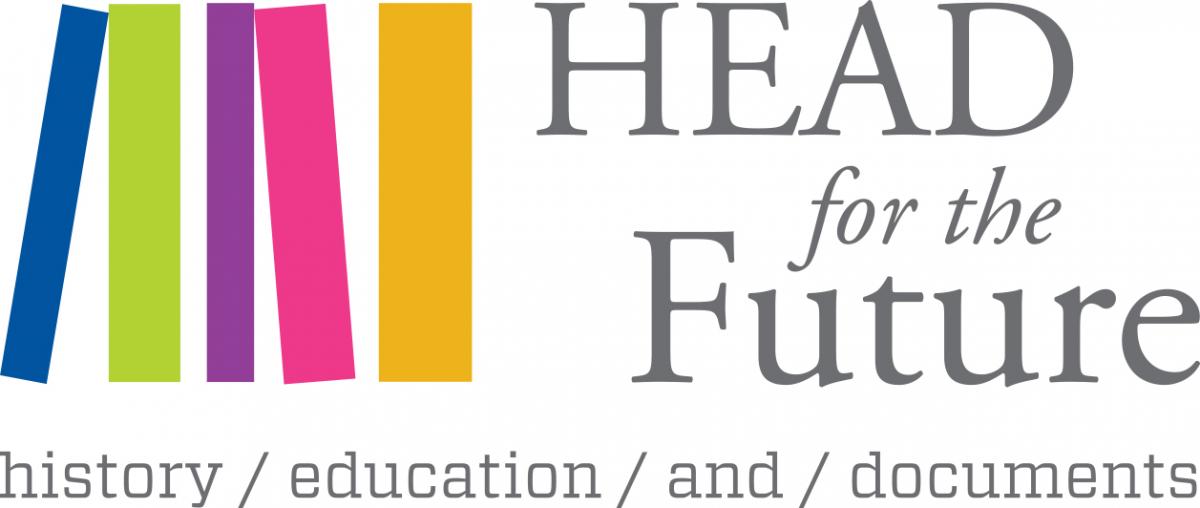The Historical Society of Pennsylvania (HSP) has begun a long-term partnership with Wells Fargo & Company to create a comprehensive and unique center for historical education and discovery.
As one of the nation’s most significant archival collections, spanning the 17th to 21st centuries, HSP values the shared documentary heritage encapsulating our collective history by preserving and making these materials accessible to everyone.
With Wells Fargo’s generous support, HSP is seeking to become a national center for history education by delivering its document-based learning approach to educators and students throughout the region and beyond.
These new initiatives, collected under the title “HEAD for the Future” (History, Education, and Documents), are designed for educators looking for a more holistic method of teaching that will help their students establish tactile connections to the past. These experiences build literacy skills, critical and creative thinking abilities, and empathy for others—all vital 21st century skills addressed in curriculum standards and employers’ preferences.
But history suffers from poor publicity. Many of us are guilty of considering history as little more than a sterile collection of facts, of little relevance to our daily lives or to other academic subjects. HSP and Wells Fargo seek to remedy this through a multi-tiered approach that includes online curricula, student support, teacher training, and distance learning.
First, imagine a group of students turning to a chapter in their social studies textbook that covers the Constitutional Convention. The chapter would be chock-full of text, including dates and names such as James Madison, Robert Morris, Benjamin Franklin, and Alexander Hamilton. There may be some imagery in the textbook in the form of a portrait or a painting of the scene from Independence Hall’s assembly room.
Now, instead imagine a group of students at HSP viewing the original first six drafts of the Constitution—some hand-written, others printed—and being asked questions that lead to the examination of the story told by the text. While viewing the handwritten manuscripts, the students are asked to imagine the tense and sweltering conditions of the assembly room full of the fledgling nation’s leaders and to compare one document to the next. What changes occurred from one draft to the next reflect the dynamic thinking of the Founders and allow us to peer into their creative process in an intimate way.
This is the type of memorable and transformative experiences that HEAD offers. The evolution of the Constitution is one of many stories around which HSP can create memorable curricular experiences. Others include the Underground Railroad, World War II internment camps, women’s suffrage, ethnic history, and neighborhood history. Each of these tells the story of America, often through the lens of Pennsylvania and mid-Atlantic history, but unified through nationally relevant themes.
HSP, in partnership with Wells Fargo, proposes to create these experiences through a multi-tiered approach that includes online curricula, student support, teacher training, and distance learning. Through the following programs HSP will reach hundreds of students each year throughout Pennsylvania and has the potential to reach thousands more through technology. Specifically, H.E.A.D. for the Future will include (annually):
- Development of 6 new curricular units to be available online
- 20 class visits to HSP
- 20 HSP visits to classrooms
- An afterschool mentorship program on Wednesday evenings
- Support of National History Day
- 6 teacher workshops throughout the academic year (including one dedicated to
- financial literacy)
- Summer teacher institute focused on a relevant historical topic
HEAD for the Future
An examination of the documents that tell of our collective history creates an instant rapport with people from the past. That experience builds literacy skills, critical and creative thinking abilities, and empathy for others—all vital 21st century skills addressed in curriculum standards. HSP’s effort to improve these skills in students reflects a number of Wells Fargo’s philanthropic priorities, including education, cultural opportunity, and civic development.
This new collaboration between HSP and Wells Fargo builds upon previously successful partnerships. In 2012, HSP, with support from Wells Fargo, embarked on a three-year archival conservation project that is physically preserving and making accessible the records of the Bank of North America—the nation’s first central bank and predecessor of Wells. The Bank of North America records are one example of the nationally important collections that HSP’s staff will use as the primary sources for building discovery based lesson plans.
HSP’s Wells Fargo Education Manager
As part of a long-term partnership with Wells Fargo & Company to position HSP as a comprehensive and unique center for historical education and discovery, a full-time Education Manager has been hired: Alicia Parks. Ms. Parks graduated in May with a M.A. in History and a certificate in public administration from Villanova University, previously receiving a B.S. in Education from the University of North Carolina at Greensboro. She has hands-on experience teaching elementary though college students, and is familiar with HSP and its collections through her HSP Education Internship in the spring.
About the Historical Society of Pennsylvania
The Historical Society of Pennsylvania is a provider of education and information for the people of Philadelphia and beyond. With over 21 million documents – including manuscripts, graphics, and ephemera – HSP serves more than 4,000 researchers who come through its doors annually and millions more around the globe who use its resources online at hsp.org. HSP offers extensive online resources including digital collections, curricular materials, and hosts educator workshops, public programs and lectures throughout the year. hsp.org


